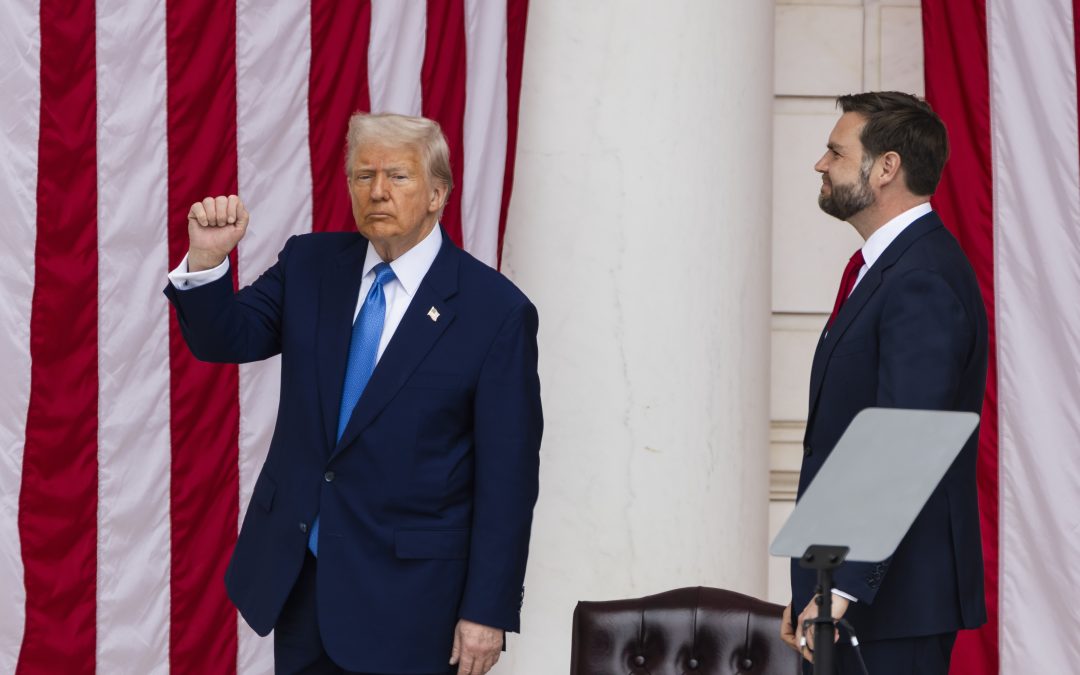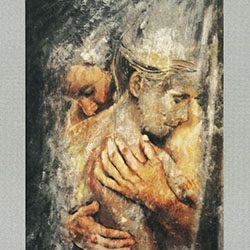The answer to this question has been discussed by many scholars, more knowledgeable and wiser than me. Regardless, like many, I worry that the fact that this issue is questioned at all and parallels the philosophical division of conservatives and liberals; might also be a factor in the unquestionable decline in our culture, values, and the country in general.
The latest (July 2014) Pew comprehensive survey on religion and public life shows that 83.1% of our adult population call themselves believers in a religious faith, 78.4% Christians.
Only 4.5% are atheists or agnostics, and 12% unaffiliated.
I personally believe in a God or Creator, and in the value of faith, even if I do not practice any particular religion.
Does our Constitution call for a separation of church and state, thus forbidding the religious symbols that are common in our daily life? Do we have a clear legal vision by our Supreme Court on this matter? Can a country have a secular government and be a Judeo-Christian nation?
My answers would be, no, no, and yes. The often-cited separation of church and state does not appear in our Constitution anywhere including the first amendment.
The restriction present to assure our individual right to practice any religion or none, is aimed at our rulers, to note; “Congress should make no law respecting an establishment of religion or prohibiting the free exercise thereof…”.
The wording separation of church and state came from a letter by Thomas Jefferson responding to a query by the Danbury Baptist association and referred mainly to the anti-federalist notion, shared by James Madison, of states’ rights in Virginia and their Statute for religious freedom vs. the Church of England.
Regardless, the Supreme Court in 1947 cited Jefferson’s words when upholding New Jersey’s law reimbursing Catholic schools for usage of public transportation as not violating the first amendment (Everson vs. Board of Education, 1947).
In other cases, our highest court has prohibited practices like reading the Bible, religious instruction, prayers, banning teaching evolution, and or posting the Ten Commandments, among others, in public schools as unconstitutional.
On the other hand government usage of words like “in God we trust” in our currency and buildings has been considered symbols of our culture and not of a religious nature. There is no doubt that our forefathers were religious and based their government framework in the Judeo-Christian idea of liberty and individual freedom as part of a “self-evident, God given right”.
Our Constitution even though it mentions “not to do work on the Sabbath” and dates the document as “the year of our Lord” was written with the clear intent of it being a secular work.
Most objections to the idea of calling our nation Judeo-Christian are based in the “Treaty of Tripoli”, that denies our being a Christian Nation, and the declaration of President John Tyler in a letter dated in 1843 on the same vein. To this history we should add the recent statement by our President Obama in 2009, that when delivering a speech in Turkey declared “that the United States did not consider itself a Judeo-Christian nation”.
Other liberals cite that the values attributed to the Jewish and Christian religions are copied from Greek philosophers as Epicurus. Conservatives claim in turn, that Tripoli’s treaty was written by a known “free thinker” Joel Barlow, and that every President starting by George Washington have reiterated their believe in God and his role in their governance.
In conclusion, there is no doubt in my mind that our nation’s background and that of our founders was based in the principles of their religious faith, these being the rights of the individual, rejecting the prevailing European collectivism.
Their faith in a God and Creator, that gave us the right of liberty, also gave us values to follow like adherence to work and sacrifice, generosity, love to others, all entrenched in the teachings of the Old and New Testaments, or a Judeo-Christian tradition.
These same ethics are the basis for the laws that encourages freedom to worship or not, in their own individualized desire. It is not intended to abandon the majority view and practices that have been responsible for the uniqueness and greatness of our society.
Unfortunately, the rights of minorities have turned into dominance of ideas that are not shared by most, and we are witnessing how a small number of our population have begun to erode our beliefs that are entrenched in past generations and should be taught and encouraged by families, religious, and educational institutions.
A fear of suppressing minority rights has been converted into a rule by the few, and our Judeo-Christian upbringing attacked in its core.
Our traditional family unit is being destroyed in its foundation, fewer persons as per Pew claim to practice a religion, and our rulers spouse collectivism and dependency. It we do not awaken as a nation we will succumb to these changes for the worse.











0 comentarios